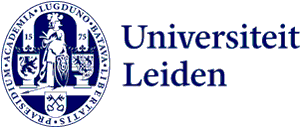
Edmund Flett wins J.C. Baak Thesis Prize 2023
Edmund Flett, alumnus of the International Relations master's programme, has won the 2023 J.C. Baak Prize for his thesis ‘Settlements now, settlement later. Land swaps, settler relocation, and the viability of the two-state solution in Israel-Palestine’.
Edmund has been learning about the Israeli-Palestinian conflict since he volunteered in a hostel in East Jerusalem during the summer of 2017, at a particularly tense time in the city. For his thesis, he focused this interest on ‘land swaps’ – the device used in previous two-state negotiations to address the Israeli settlement issue. ‘Under this formula, most of the Israeli settler population would be annexed into Israel, which would minimise evacuations,’ he explains. ‘In return, the Palestinians would be compensated with unpopulated territories from pre-1967 Israel. This would enable the Palestinian government to proclaim to their population that they have successfully negotiated a share of historic Palestine equal in size to the “1967 borders” claim.’
Although such a diplomatic solution seems distant in Israel now, Edmund’s conclusion was hopeful. ‘My semi-optimistic conclusion is that a two-state settlement roughly based on the 2008 negotiations continues to be a material possibility, strictly speaking. And though it remains politically impossible, political barriers can sometimes be moved.’
‘Let your voice shine through’
It took Edmund a while to venture such a firm conclusion. ‘As a student, it’s easy to feel like every sentence needs loads of citations after it to be credible. I would say to future students: don’t be afraid to let your voice shine through! You don’t always have to speak through other scholars. Master’s research topics tend to be very specific, so it’s unlikely anyone recently has read all the documents and sources you have: this gives you a unique perspective to share, so make sure it’s shared clearly.’
About the prize
With the J.C. Baak Fund, KNAW makes available a graduation prize of 2,000 euros every two years for a master's thesis in one or more of the following scientific fields: philosophy, law, political science, international relations, sociology. The research should be particularly relevant to the peaceful coexistence of different peoples.
